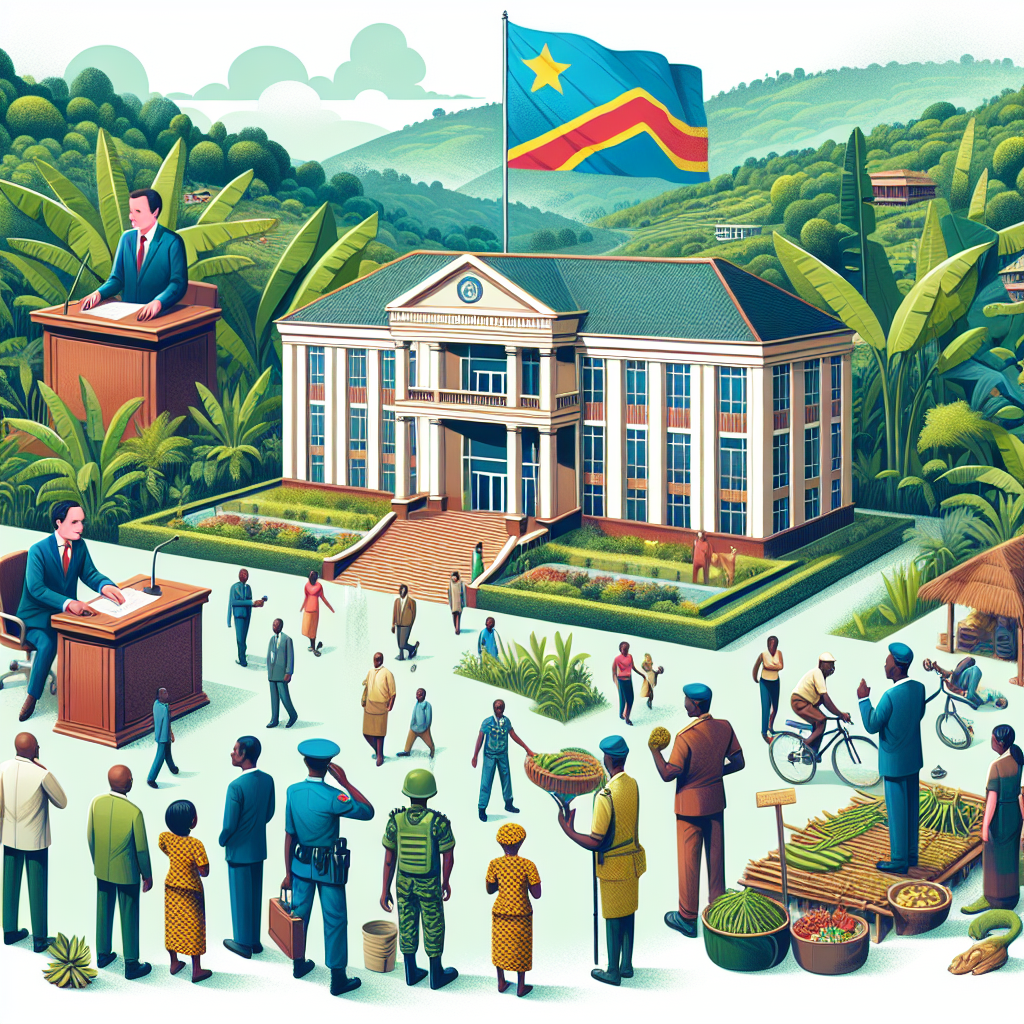Justice on the Move: Mobile Courts Deliver Accountability and Hope in Conflict-Hit DRC
Landmark Trials Bring Convictions for War Crimes, Addressing Sexual Violence and Other Grave Abuses.

In the heart of remote villages in the Democratic Republic of the Congo (DRC), mobile court hearings are redefining access to justice. These open-air courtrooms bring judges, lawyers, and prosecutors directly to rural communities, delivering long-overdue accountability for crimes committed during decades of conflict. Spectators in these villages, often victims themselves, watch as soldiers, militia members, and other perpetrators of war crimes face justice, including convictions for sexual violence, forced pregnancy, and illegal exploitation of natural resources.
Justice in Motion
Mobile courts, established under DRC law more than a decade ago, have become a critical tool in addressing human rights abuses in areas far from urban centers. Between January 2023 and November 2024, the UN Joint Human Rights Office in Congo (UNJHRO) supported 19 mobile courts, resulting in 777 convictions out of 1,010 prosecuted cases for violations of international humanitarian law and human rights.
The hearings offer practical advantages: victims testify closer to home in familiar environments, reducing trauma and logistical barriers. They also serve an educational purpose, demonstrating to local communities that even the most heinous crimes are not beyond the reach of the law.
“Mobile hearings are very appreciated because they strengthen the population's confidence in national jurisdictions and show that justice was served,” said Paul-Thierry Kalonga, a human rights officer with UNJHRO.
Landmark Convictions
Mobile courts have achieved several precedent-setting rulings:
-
Life Sentence for Raïa Mutomboki Leader: In June 2024, the South Kivu military court upheld the life sentence of Munyololo Mbawo, former leader of the Raïa Mutomboki armed group. He was convicted of murder, rape, torture, pillaging, and forced pregnancy, with 127 victims awarded compensation. This marked the first time a national court recognized forced pregnancy as an international crime.
-
Conviction for Natural Resource Exploitation: In September 2022, Captain Mihonya Kolokolo received a life sentence for enlisting child soldiers and exploiting protected reserves, including the Kahuzi Biega National Park. This case was a groundbreaking move to hold perpetrators accountable for environmental crimes in the DRC.
Challenges and Protections
The mobile courts face significant hurdles, including ensuring the safety of victims and witnesses. To protect anonymity, victims often testify in loose garments covering their faces and bodies.
UN Human Rights provides victims and witnesses with medical, psychological, legal, and socio-economic support, benefitting over 700 individuals in the past two years. The organization also ensures trials meet international standards and advocates for victim participation in legal proceedings.
“Without the victim's or witness’ participation in the trial or the investigation, there are no results in the fight against impunity,” Kalonga emphasized.
Call for Broader Action
Despite progress, significant gaps remain in addressing sexual violence in conflict zones. Women in refugee camps, displaced by ongoing conflict, rarely see their cases investigated, let alone prosecuted. Lyliane Moseka, a human rights lawyer, noted the dire need for expanded legal support and systemic changes to protect these vulnerable populations.
Following his April 2024 visit, UN Human Rights Chief Volker Türk warned of increasing human rights violations and called for urgent action to protect civilians. He emphasized the importance of accountability to rebuild social cohesion and advocated for a victim-centered, holistic transitional justice policy.
“Adopting and implementing such a policy would help the country come to terms with its troubled past. My Office continues to support the authorities to this end,” Türk stated.
The Path Forward
As the DRC continues to grapple with conflict and its consequences, mobile courts represent a glimmer of hope. By bringing justice closer to the people, these courts not only hold perpetrators accountable but also lay the groundwork for healing, reconciliation, and lasting peace. The ongoing commitment of local and international organizations will be vital in ensuring the expansion of these efforts, offering justice and dignity to all victims of conflict.
- READ MORE ON:
- Mobile courts










